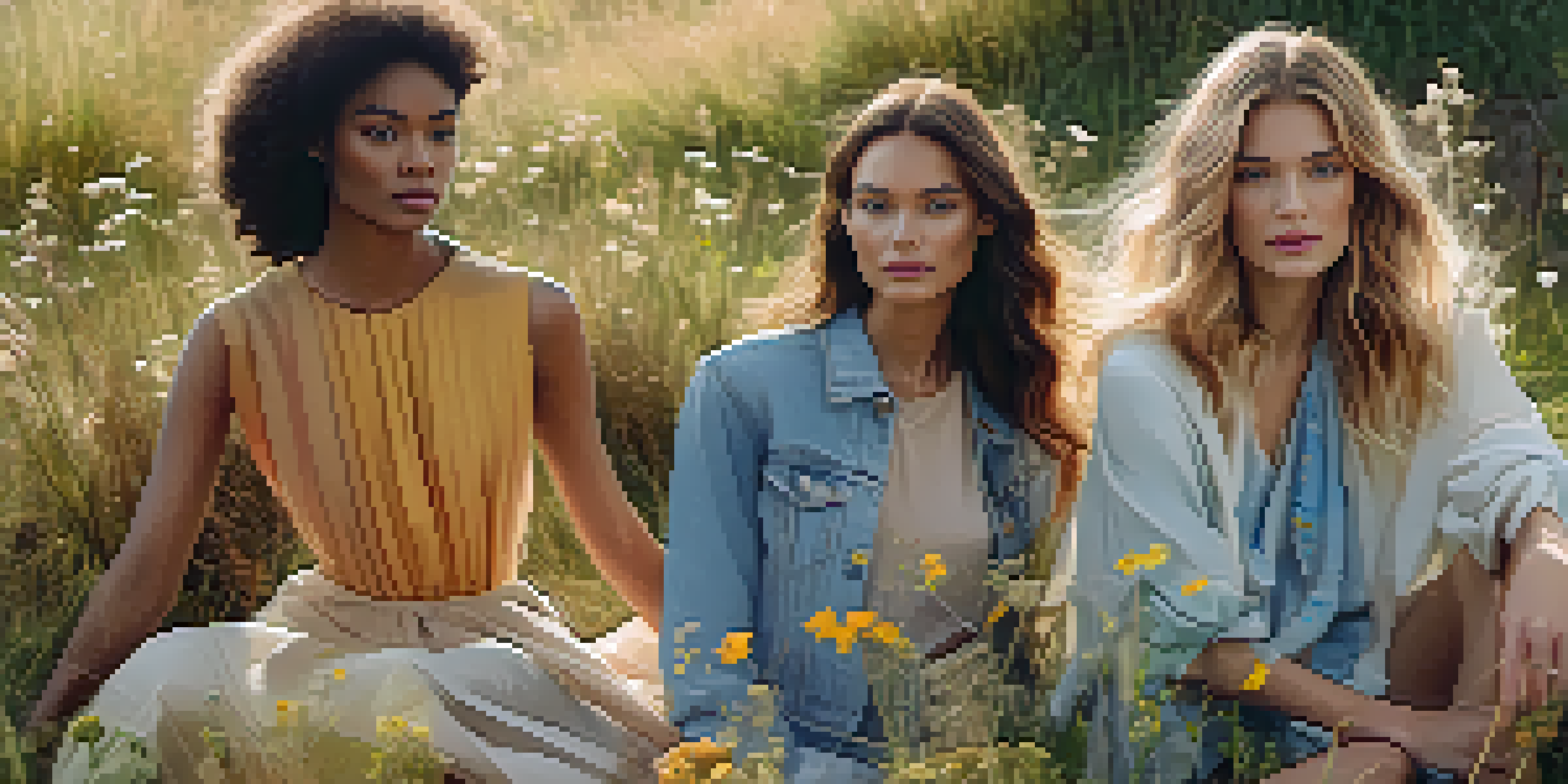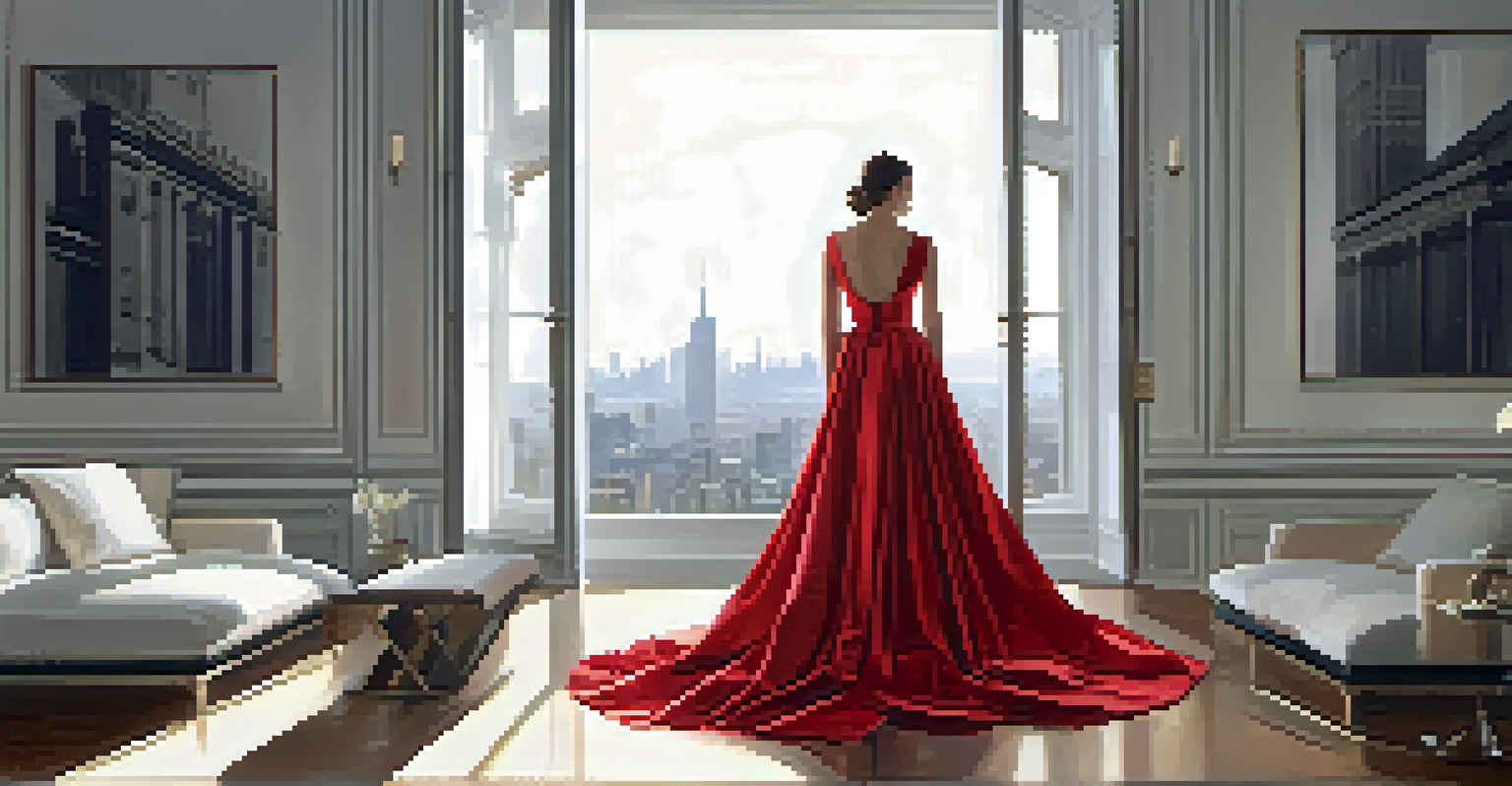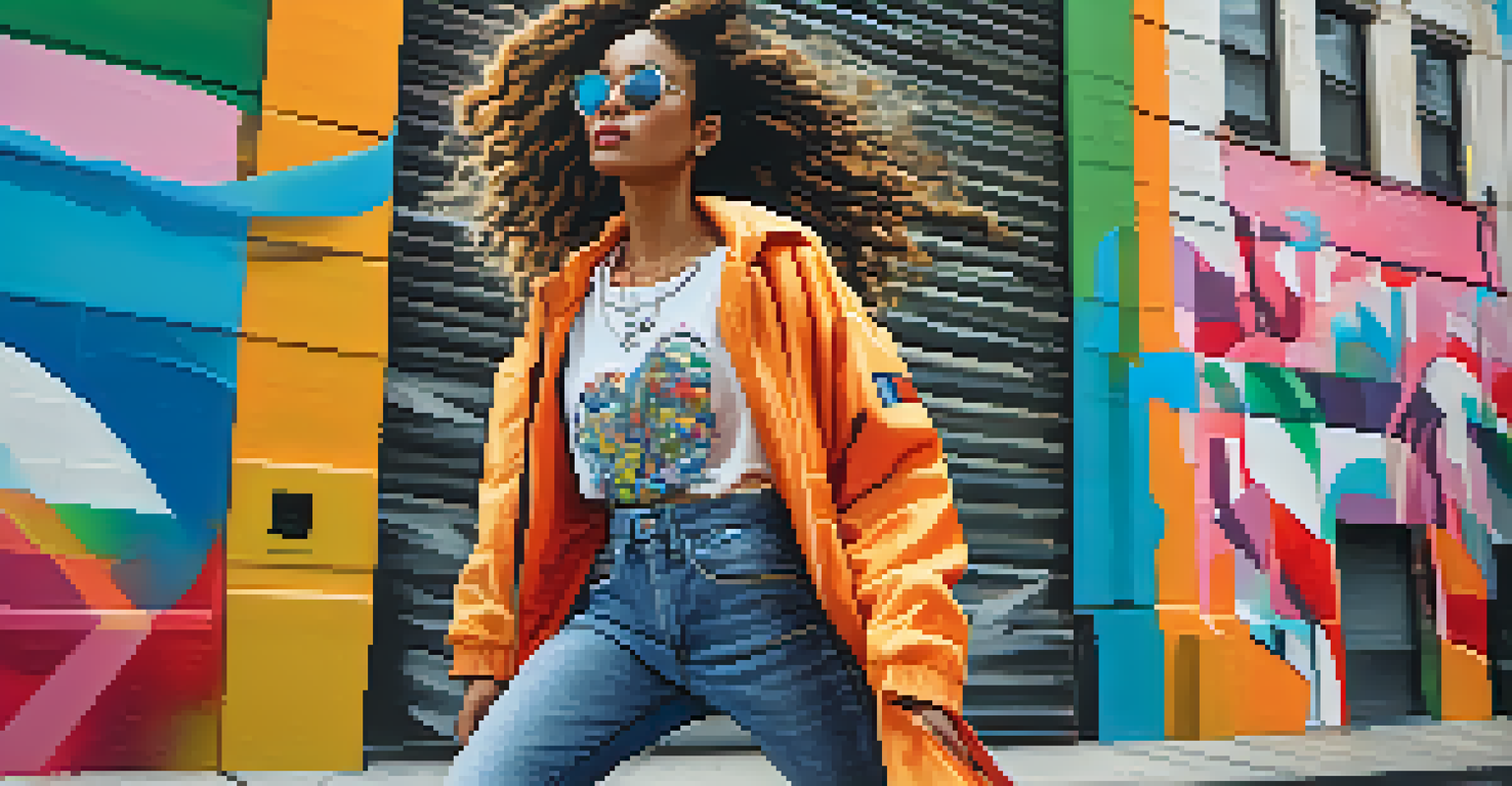Fashion Photography and Its Role in Brand Storytelling

The Essence of Fashion Photography in Brand Identity
Fashion photography is more than just capturing beautiful clothes; it's about storytelling. Each image conveys a brand's personality, ethos, and aesthetic, helping create an instant connection with the audience. For instance, a brand that emphasizes sustainability might showcase natural settings to reflect its values.
Fashion is the armor to survive the reality of everyday life.
These visuals serve as a silent dialogue between the brand and its customers, illustrating what the brand stands for. Consumers today are savvy and seek authenticity, making it essential for brands to communicate their stories visually. Fashion photography provides that platform, turning products into narratives that resonate.
Ultimately, the goal is to create a memorable image that lingers in the mind of the viewer. When done right, fashion photography can elevate a brand from merely selling products to crafting an entire lifestyle that customers aspire to.
Creating a Visual Language for Brands
Fashion photography establishes a unique visual language that speaks to the audience without words. This language includes color palettes, styling, and composition that reflect a brand's core values. For example, high-contrast images might suggest boldness and innovation, while soft, pastel tones can evoke calmness and approachability.

By consistently using this visual language, brands can strengthen their identity and foster recognition. When consumers see a particular style or color scheme, they should instantly think of the brand behind it. This consistency builds trust and loyalty among the audience.
Fashion Photography Tells Brand Stories
Fashion photography goes beyond aesthetics, creating visual narratives that convey a brand's identity and values.
Moreover, as trends evolve, brands can adapt their visual language while maintaining their core message. This flexibility helps keep the brand fresh and relevant, ensuring it continues to engage its audience effectively.
The Role of Emotion in Fashion Photography
Emotion is a powerful tool in storytelling, and fashion photography captures it beautifully. An evocative photograph can elicit feelings of desire, nostalgia, or joy, making it easier for consumers to connect with the brand on a personal level. Think about how a picture of a model laughing in a sunlit field can evoke happiness and warmth.
Photography is the story I fail to put into words.
This emotional connection enhances brand loyalty, as consumers are more likely to support brands that resonate with their feelings and aspirations. By tapping into human emotions, brands can create lasting impressions that go beyond mere transactions.
Furthermore, the right emotional tone can also influence purchasing decisions. When consumers feel positively about a brand, they are more likely to choose it over competitors, making emotional storytelling a key strategy in fashion photography.
Fashion Photography as a Tool for Engagement
In today's digital age, fashion photography plays a crucial role in engaging audiences across various platforms. Social media channels like Instagram and Pinterest thrive on compelling images, making fashion photography an essential marketing tool. A stunning photo can capture attention and encourage shares, expanding a brand's reach exponentially.
Engagement goes beyond likes and shares; it fosters community. When consumers interact with a brand's imagery, they feel a part of something larger. This sense of belonging can turn casual viewers into loyal advocates who promote the brand organically.
Emotional Connection Drives Loyalty
Capturing emotions through photography enhances consumer connection and loyalty, influencing purchasing decisions.
Additionally, user-generated content can enhance this engagement further. When brands encourage customers to share their own photos while wearing their products, it creates a cycle of interaction that strengthens the brand's presence and credibility.
Diversity and Inclusion in Fashion Photography
Diversity in fashion photography is increasingly recognized as essential for brand storytelling. Representing a wide range of ethnicities, body types, and backgrounds promotes inclusivity, allowing more consumers to see themselves in the brand's narrative. This representation can significantly enhance a brand's image and reach.
Moreover, brands that embrace diversity often resonate more with their audiences, as consumers are eager to support those that align with their values. For example, campaigns showcasing models of various sizes and backgrounds can break stereotypes and challenge industry norms.
Ultimately, inclusive fashion photography not only enriches brand storytelling but also reflects the real world. By showcasing diversity, brands can foster deeper connections with their audience and pave the way for a more inclusive industry.
The Impact of Technology on Fashion Photography
Technology has revolutionized fashion photography, changing how brands tell their stories. High-quality cameras, editing software, and digital platforms allow for greater creativity and precision in image-making. Brands can now produce stunning visuals that were once only possible in high-end magazines.
Additionally, technology has made it easier to share these visuals instantly with a global audience. Social media platforms enable brands to showcase their latest collections and campaigns in real-time, creating a sense of urgency and excitement. This immediacy can drive sales and engagement in ways that traditional methods can't match.
Diversity Boosts Brand Representation
Inclusive fashion photography allows a wider audience to see themselves in brand narratives, enhancing engagement and support.
Moreover, advancements like virtual reality and augmented reality are opening new avenues for immersive storytelling. Brands can now create interactive experiences that allow consumers to engage with their products and narratives in previously unimaginable ways.
Future Trends in Fashion Photography and Brand Storytelling
As we look ahead, several trends are emerging in fashion photography that will shape brand storytelling. One significant trend is the rise of authenticity over perfection. Brands are increasingly opting for relatable images that showcase real moments rather than overly staged setups, aligning with consumer preferences for genuine connections.
Sustainability is also becoming a key theme, with brands using photography to highlight eco-friendly practices and products. By showcasing their commitment to sustainability through visuals, brands can attract environmentally conscious consumers and differentiate themselves in a crowded market.

Finally, the integration of AI and data analytics will likely play a role in future fashion photography. By understanding consumer preferences and behaviors, brands can tailor their imagery to resonate more effectively with their audience, ensuring that their storytelling remains impactful and relevant.